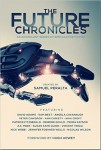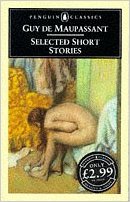“The Worm That Flies”, by Brian W. Aldiss, first published in the anthology The Farthest Reaches in 1968, is an odd one. I couldn’t get into it at all, but I pushed on to the end. I read it in the nice collection The Legend Book of Science Fiction, edited by Gardner Dozois and published in 1991.
It is, as far as I can tell, about an immortal ape who collects stones and is constructing a pattern with them that has taken millions of years, and then he is told that the universe is ending (?) or he isn’t immortal any more (?).
I lost concentration too many times, and even lost consciousness once while reading this, so I may not have understood it fully. I have never been able to get into the writing of Brian Aldiss. I gave up on Hothouse (The Long Afternoon of Earth in the US) before the end, and although I read the entire first volume of the Helliconia series, Helliconia Spring, I never felt interested enough to read the rest of the trilogy.
I am sure I must be missing out. Perhaps I am just too dumb to get what he is saying. I am a simple soul, and don’t like to have to think too hard to enjoy a work of fiction. I read non-fiction for that.
Aldiss is one of the greats and I as one of my friends is a stalwart Aldiss fan and is always trying to convince me to read more of him, and particularly to try Hothouse again, but life is too short.
So what did I learn about writing short stories from reading this particular story? Well, that anything goes, and it doesn’t have to mean anything or make much sense, perhaps particularly if you are already established and a big name in the genre. Sour grapes?
 “Ethical Override” by Nina Croft was first published in The Robot Chronicles. I read it in the collection The Future Chronicles – Special Edition. Until February 29, 2016, you can get The Future Chronicles – Special Edition, or any one of a selection of free books, by signing up to Discover Sci-Fi.
“Ethical Override” by Nina Croft was first published in The Robot Chronicles. I read it in the collection The Future Chronicles – Special Edition. Until February 29, 2016, you can get The Future Chronicles – Special Edition, or any one of a selection of free books, by signing up to Discover Sci-Fi. “Two Friends” is a short short story by Guy de Maupassant. I read it in
“Two Friends” is a short short story by Guy de Maupassant. I read it in 
